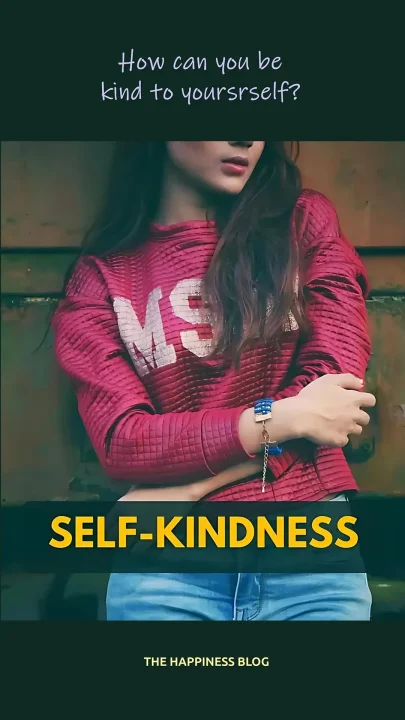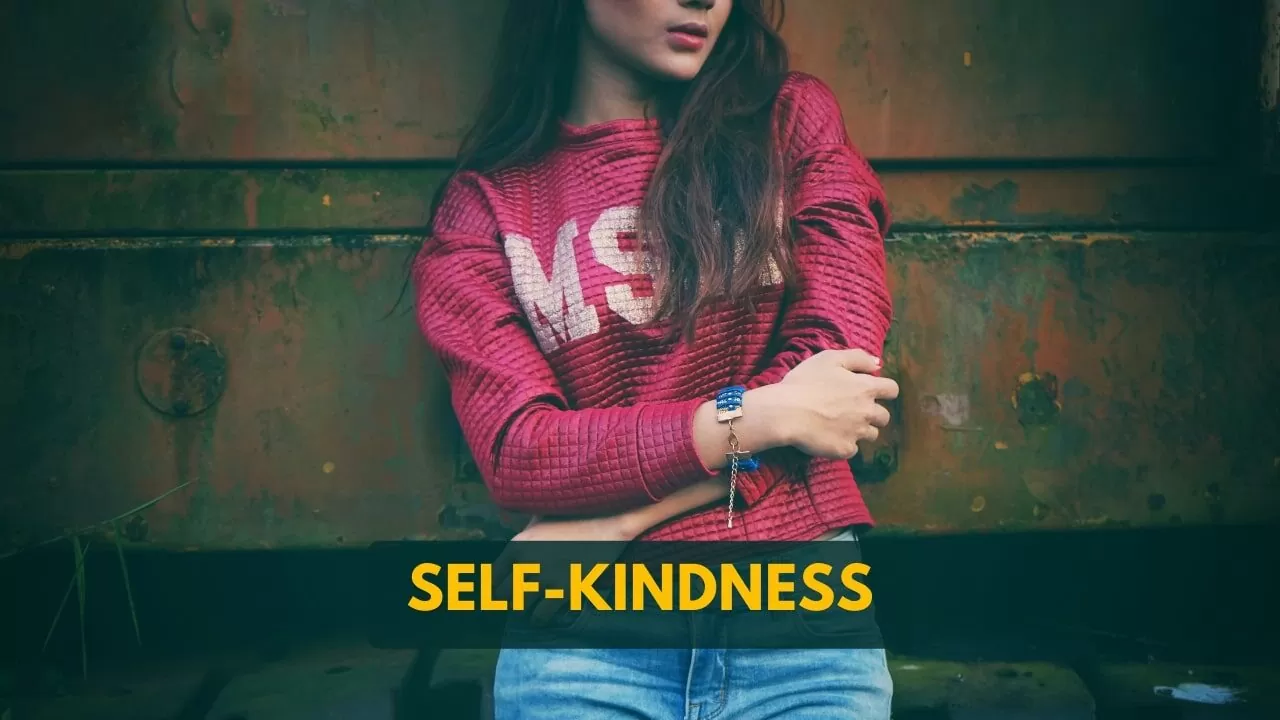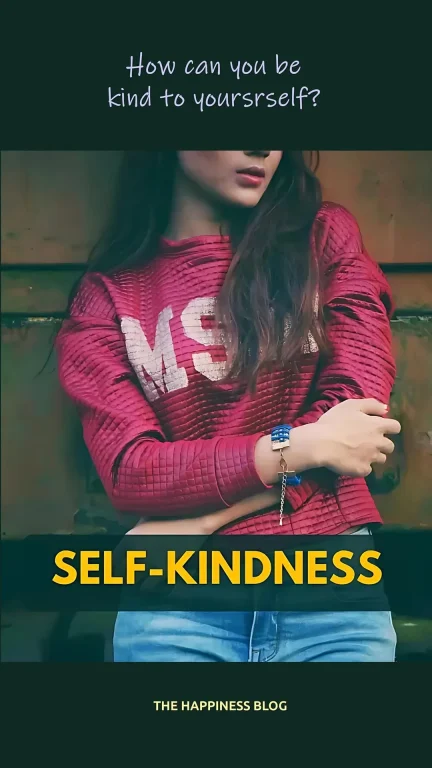Today's Saturday • 10 mins read
— By Dr. Sandip Roy.
Kristin Neff, a leading compassion researcher, tells us that 75% of us are habitually nicer to others than we are to ourselves.
Why is it so hard to empathize with our struggles and be kind to ourselves?
Because our parents, teachers, peers, and society teach us to be tough on ourselves for more success. We often internalize this into a habit of self-criticism and harsh judgment.
Self-kindness is not about passing up opportunities or denying your mistakes. Instead, it is about being a friend to yourself, feeling better, and having better mental health.
Takeaways:
- Go easy on yourself. You, as much as anyone else, deserve peace, fun, and joy.
- Get creative. Adding a novelty or newness to your regular activities is a good idea.
- You cannot change your past, so don’t keep dragging it into your present. Learn to let go.
First, find out how kind you actually are to yourself.
Take this quiz below to find your self-kindness score:
Unconditional Self-Kindness Quiz
Answer these questions as honestly as you can by selecting one option for each question:
The above quiz is based on The Unconditional Self-Kindness Scale by Smith, Guzman, & Erickson, 2018.
Self-kindness is a skill you can build. Now, let’s find out how to grow it.

How To Be More Kind To Yourself?
See self-kindness as more of a way of life than a practice to solve your current problems.
Here are some ways to increase your self-kindness:
1. Self-kindness affirmations.
Why it works: Self-affirmations are positive, present-tense statements that rewire your self-talk. Affirmations broaden our sense of self-concept and reduce threat and defensiveness (Critcher and Dunning, 2015).
How To Do It:
Get yourself a poster you will see every morning, that says:
I’m going to be kind to myself today.
Try these daily reminders (desktop or mobile notifications, or Post-It notes) to nurture self-kindness:
- “I embrace my flaws, as they make me human.”
- “My mistakes are proof that I’m growing and learning.”
- “I forgive myself for past mistakes; they don’t define me.”
- “I am learning to be gentler with myself, one step at a time.”
- “I release today with love, and welcome tomorrow with hope.”
- “I treat myself with the same kindness I give to my best friend.”
- “I release others’ opinions of me. My worth comes from within.”
- “I am not alone in my struggles, and I respond with self-kindness.”
- “I choose to be kind to myself, no matter what my thoughts might say.”
- “I deserve compassion, tenderness, and empathy from myself most of all.”
2. Take a self-kindness break day.
Why it works: Novelty boosts dopamine (the “reward” chemical), while predictable routines dull your emotional responses. Like, the 7th bite of pizza feels less flavorful than the first. So, take breaks from routine to feel pampered and treated with kindness by yourself.
How To Do It:
- Mark your calendar. Choose one fixed day per week (e.g., every Sunday) and treat it as sacred.
- Pro tip: Set a monthly reminder. Ask an LLM: “Plan my kindness day!”
- Break your patterns. Avoid work, chores, or habitual tasks. Ask: “Does this feel like an obligation?” If yes, skip it.
- Example: If you love cooking but do it daily, try a picnic instead, where you won’t have to cook.
- Prioritize active joy. Passive activities (e.g., scrolling) don’t recharge you as deeply as immersive experiences. Try:
- Sensory refresh: A spa day, forest walk, or pottery class.
- Playful novelty: Visit a zoo, take a dance lesson, or explore a new neighborhood.
- Quiet connection: A silent meditation retreat or solo bookstore date.
- Protect your self-kindness day fiercely. Decline requests that intrude on this day.
- Say: “I’m honoring a personal commitment.”
Science Says:
- Novelty rewires the brain to stay emotionally resilient (Graybiel, 2008).
- Scheduled breaks reduce burnout and increase creativity (Amabile, 2014).
Try This:
“Next Sunday, I’ll visit the botanical garden. No emails, no chores. I’ll take a sketchbook and my favorite tea. This day is my gift to myself.”
3. Write yourself a self-kindness letter.
Why it works: Writing a self-kindness letter in the third person creates psychological distance, helping you be less defensive and more compassionate (like comforting a friend).
How To Do It:
- Name the struggle. Be specific about the event and emotions (shame, guilt, fear, etc.).
- Example: I know you’ve been carrying guilt about [incident] and feeling [emotions]
- Validate, don’t minimize. Avoid generic platitudes (“Everyone makes mistakes”). Instead, acknowledge the pain first.
- Example: It makes sense that this hurts. You cared deeply, and that’s why it stings.
- Reframe with kindness. Focus on growth, highlight strengths, use stronger phrasing.
- Example: What happened doesn’t erase how far you’ve come. Remember how you [specific strength]? That’s still true.
- Add a “forward step”. End with a small, loving action (not just advice).
- Example: Let’s take a walk tonight, just you and me, to celebrate your courage in facing this.
Sample Self-Kindness Letter
Dear [Your Name],
I’m writing because I see how hard you’ve been on yourself about [event]. You’ve been feeling [emotions], and I want you to know: those feelings matter. You matter.
This situation doesn’t define you. What defines you is how you [specific strength, e.g., “keep showing up,” “learn,” “care deeply”]. Remember when you [positive example]? That’s who you truly are.
You don’t need to punish yourself to grow. Growth comes from compassion, not shame. Today, I invite you to [small, kind action: light a candle, dance to your favorite song, or sit quietly and breathe]. You deserve that grace.
Whenever you’re ready, I’m here—not to judge, but to remind you: You are enough, exactly as you are.
With love,
[Your Name]
Self-distancing, a helpful mechanism of emotional control that helps us generate meaning from our experiences, is facilitated by expressive writing (Park et al., 2016).

4. Practice mindfulness to grow self-kindness
Why it works: Mindfulness trains you to observe thoughts and emotions without judgment. That is a foundational skill for self-kindness. Research confirms that mindfulness correlates strongly with self-compassion, openness, conscientiousness, and psychological well-being.
How To Apply It:
- Start small. Begin with 5 minutes daily. Focus on your breath or body sensations.
- When distracted, gently note: “That’s a thought/feeling” and return to focus—no self-criticism.
- Notice self-judgment. During meditation, observe harsh inner dialogue (e.g., “I’m bad at this”).
- Respond with kindness: “It’s okay. I’m learning.”
- Expand to daily life. Pause when stressed. Ask: “What do I need right now?” (e.g., a breath, a break).
- This builds habitual self-kindness, not just impassive self-awareness.
Science-Backed Benefits:
- Reduces rumination (linked to self-criticism)
- Increases gray matter in brain regions tied to emotional regulation
- Strengthens the “observer” perspective, helping you respond to struggles with clarity, not shame
Try this:
”Sit quietly. Breathe naturally. When your mind wanders to a worry, silently say, ‘This is hard, but I’m here with myself.’ Return to your breath. End by placing a hand on your heart and saying, ‘I deserve this moment of peace.’”
Here is a beginner’s guide: 7-Step Beginner Guide To Mindfulness Meditation.
Self-Kindness In Positive Psychology
Self-kindness means treating yourself nicely and doing things that help you feel better, especially when you feel a threat to yourself.
Research finds there are three main types of threats where self-kindness is both difficult and important (Abela & Seligman, 2000; Iacoboni, 2009; Ryan & Deci, 2000):
- Criticism and rejection: when you’re criticized or rejected by someone you care about
- Failure or making mistakes: when you think you have failed or made a mistake
- Awareness of flaws and imperfections: when you realize your flaws and defects
Self-Kindness Interventions From Psychology
Studies suggest that acceptance-based therapy may have a greater effect on passive self-kindness (Forsyth & Eifert 2007), while behavioral-change therapy may have more effect on active self-kindness (Martell et al., 2001).
Acceptance Interventions
- Mindfulness-Based Stress Reduction (MBSR): Helps people become more aware of their thoughts and feelings without judgment, often using meditation and slow movements to reduce stress.
- Acceptance and Commitment Therapy (ACT): Helps people accept their feelings and commit to actions that align with their values, focusing on being present and accepting difficult emotions.
- Mindfulness-Based Cognitive Therapy (MBCT): Combines mindfulness techniques with cognitive therapy to help manage thoughts and emotions more effectively.
Behavior Change Interventions
- Behavioral Activation: Encourages people to engage in activities that bring pleasure or a sense of accomplishment, often used to treat depression and anxiety.
- Cognitive Behavioral Therapy (CBT): Focuses on changing negative thought patterns and behaviors, setting specific goals, and working on practical strategies to achieve them.
- Dialectical Behavior Therapy (DBT): Combines cognitive-behavioral techniques with mindfulness practices, particularly effective for those who struggle with emotion regulation and behavior change.
Final Words
In today’s high-stakes world, perfectionism, burnout, and harsh self-judgment can turn everyday stress into something toxic. You start skipping rest, pushing too hard, and dismissing your self-care needs.
The antidote is finding the time and the will for self-kindness. Those who are kind to themselves when their self is threatened have higher levels of mental health and well-being.
√ Also Read: Why Is It Hard To Forgive Yourself (Is It Okay Not To Do So?)
√ Please share it with someone if you found this helpful.
» You deserve happiness! Choosing therapy could be your best decision.
...
• Disclosure: Buying via our links earns us a small commission.
